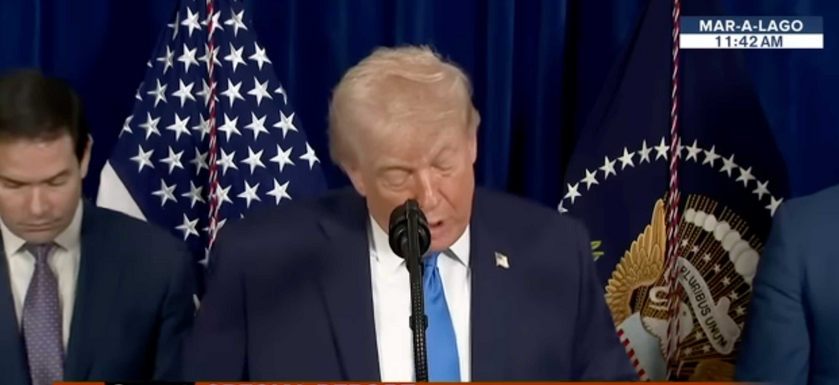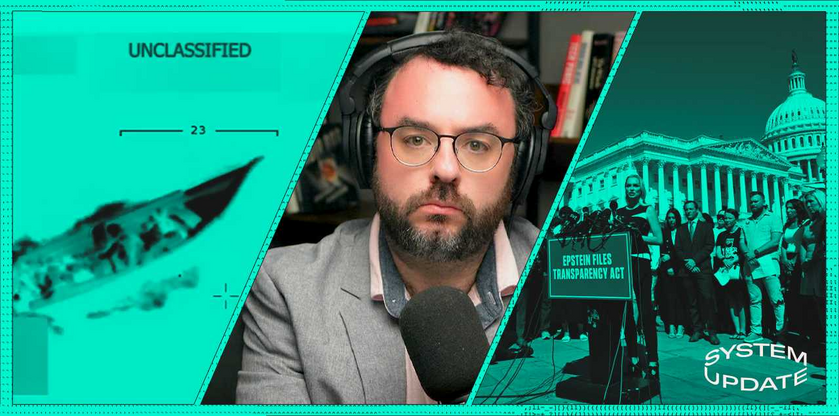[Note: The article was originally published in Portuguese in Folha de. S.Paulo, on January 5, 2026]
The United States, over the past 50 years, has fought more wars than any other country by far. In order to sell that many wars to its population and the world, one must deploy potent war propaganda, and the U.S. undoubtedly possess that.
Large parts of both the American and Western media are now convinced that the latest U.S. bombings and regime-change operation is to “liberate” the Venezuelan people from a repressive dictator. The claim that liberation is the American motive – either in Venezuela or anywhere else – is laughable.
The U.S. did not bomb and invade Venezuela in order to “liberate” the country. It did so to dominate the country and exploit its resources. If one can credit President Donald Trump for anything when it comes to Venezuela, it is his candor about the American goal.
When asked about U.S. interests in Venezuela, Trump did not bother with the pretense of freedom or democracy. “We're going to have to have big investments by the oil companies,” Trump said. “And the oil companies are ready to go."
This is why Trump has no interest in empowering Venezuela’s opposition leaders, whether it be Nobel Peace Prize winner Maria Corina Machado (who Trump dismissed as a “nice woman” incapable of governing) or the declared winner of the country’s last election Edmundo Gonzalez, in whom Trump has no interest. Trump instead said he prefers that Maduro’s handpicked Vice President, the hard-line socialist Decly Rodriquez, remain in power.
Note that Trump is not demanding that Rodriguez give Venezuelans more freedom and democracy. Instead, Trump said, the only thing he demands of her is “total access. We need access to the oil and other things.”
The U.S. government in general does not oppose dictatorships, nor does it seek to bring freedom and democracy to the world’s repressed peoples. The opposite is true.
Installing and supporting dictatorships around the world has been a staple of U.S. foreign policy since the end of World War II. The U.S. has helped overthrow far more democratically elected governments than it has worked to remove dictatorships.
Indeed, American foreign policy leaders often prefer pro-American dictatorships. Especially in regions where anti-American sentiments prevail – and there are more and more regions where that is now the case – the U.S. far prefers autocrats that repress and crush the preferences of the population, rather than democratic governments that must placate and adhere to public sentiments.
The only requirement that the U.S. imposes on foreign leaders is deference to American dictators. Maduro’s sin was not autocracy; it was disobedience.
That is why many of America’s closest allies – and the regimes Trump most loves and supports – are the world’s most savage and repressive. Trump can barely contain his admiration and affection for Saudi despots, the Egyptian military junta, the royal oligarchical autocrats of the UAE and Qatar, the merciless dictators of Uganda and Rwanda.
The U.S. does not merely work with such dictatorships where they find them. The U.S. helps install them (as it did in Brazil in 1964 and dozens of other countries). Or, at the very least, the U.S. lavishes repressive regimes with multi-pronged support to maintain their grip on power in exchange for subservience.
Unlike Trump, President Barack Obama liked to pretend that his invasions and bombing campaigns were driven by a desire to bring freedom to people. Yet one need only look at the bloodbaths and repression that gripped Libya after Obama bombed its leader Muammar Gaddafi out of office, or the destruction in Syria that came from Obama’s CIA “regime change” war there, to see how fraudulent such claims are.
Despite decades of proof about U.S. intentions, many in the U.S. and throughout the democratic world are always eager to believe that the latest American bombing campaign is the good and noble one, that this one is the one that we can actually feel good about.
Such a reaction is understandable: we want heroes and crave uplifting narratives about vanquishing tyrants and liberating people from repression. Hollywood films target such tribalistic and instinctive desires and so does western war propaganda.
Believing that this is what is happening provides a sense of vicarious strength and purpose. One feels good believing in these happy endings. But that is not what Americans wars, bombing campaigns and regime-change operations are designed to produce, and that it why they do not produce such outcomes.
















